Members of the United Nations High-level Advisory Board on Economic and Social Affairs, third term (2025-2027)
- Eudine Barriteau, Former Cave Hill Campus Principal and Pro Vice-Chancellor Professor Emerita of Gender and Public Policy, University of West Indies Cave Hill Campus; Member of the UN Committee on the Elimination of Discrimination Against Women (CEDAW)
- Ibrahim Elbadawi, Founder and Managing Director of the Development Studies and Research Forum (DSRF)
- Parfait Eloundou-Enyegue, Professor of Global Development and Brooks School of Policy, Cornell University
- Alex Ezeh, Professor at Drexel University, Dornsife School of Public Health; Former Director of African Population and Health Research Center (APHRC)
- Xiaolan Fu, Professor of Technology and International Development; Founding Director, Technology & Management Centre for Development, University of Oxford
- Anastasia Gage, Professor at the Department of International Health and Sustainable Development, Celia Scott Weatherhead School of Public Health & Tropical Medicine, Tulane University
- Jayati Ghosh, Professor, Department of Economics, University of Massachusetts at Amherst
- Stephany Griffith-Jones, Vice-Governor of the Central Bank of Chile; Professor Emeritus at Institute of Development Studies, University of Sussex
- Fadhel Kaboub, President, Global Institute for Sustainable Prosperity; Associate Professor of Economics, Denison University
- Martin Kimani, CEO of the Africa Center, New York
- Nyovani Madise, President of the Union for the African Population Studies
- Ibrahim Mayaki, African Union Special Envoy for Food Systems; former Prime Minister of Niger
- Mariana Mazzucato, Professor in the Economics of Innovation and Public Value at University College London (UCL) and Founder/Director of UCL's Institute for Innovation and Public Purpose
- Raya Muttarak, Professor of Demography, University of Bologna
- José Antonio Ocampo, Professor, Columbia University
- Åsa Persson, Strategic Advisor and Researcher, KTH Royal Institute of Technology, Climate Action Centre; Chair, Swedish Climate Policy Council
- Elisabeth Sidiropoulos, Chief Executive, the South African Institute of International Affairs (SAIIA)
- David Christopher Smith, Director, Centre for Environmental Management, The University of the West Indies; Coordinator, Institute for Sustainable Development, University of the West Indies, Kingston, Jamaica
- Dhananjayan Sriskandarajah, Chief Executive of New Economics Foundation, former Chief Executive of Oxfam, former Secretary General and CEO of CIVICUS
- Joseph Eugene Stiglitz, University Professor, Columbia University
- Izabella Mônica Vieira Teixeira, Former Minister of Environment, Brazil
- Kori Udovički, Head of Center for Advanced Economic Studies (CEVES)
Eudine Barriteau

Former Cave Hill Campus Principal and Pro Vice-Chancellor Professor Emerita of Gender and Public Policy, University of West Indies Cave Hill Campus; Member of the UN Committee on the Elimination of Discrimination Against Women (CEDAW)
Violet Eudine Barriteau is a Grenadian born, Caribbean feminist, scholar and activist with considerable experience in research, executive educational administration and coordination of regional projects. She retired from the University of the West Indies, UWI, as Pro Vice-Chancellor and Principal of the Cave Hill Campus, the first woman to serve as PVC and Principal of two UWI campuses. An Emerita Professor of Gender and Public Policy, her research interests encompass transformational educational leadership, feminist theorizing, feminist investigations of Caribbean political economy, and the intersections of gender analysis and public policy. She led the coordination of the inaugural Gender and Development Forum of the quadrennial UNCTAD XV Ministerial conferences, hosted by the Government of Barbados, October 2021. In June 2024, she was elected to serve on the United Nations Committee for the Elimination of all Forms of Discrimination Against Women, CEDAW.
Ibrahim Elbadawi

Founder and Managing Director of the Development Studies and Research Forum (DSRF)
Ibrahim Elbadawi is the Founder and Managing Director of the Development Studies and Research Forum (DSRF) (since March 2025). Previously, he was the Managing Director of the Economic Research Forum (ERF, since January 2017- August 2019; August 2020- February 2025) and Minister of Finance and Economic Planning of the Republic of Sudan (Sept 2019-July 2020). Before joining the ERF, Elbadawi was Director at the Economic Policy & Research Center, the Dubai Economic Council (2009-2016); Lead Economist at the Development Research Group of the World Bank, which he joined in 1989; Research Director of the African Economic Research Consortium (Nairobi, 1993-1998), on external leave from the Bank; and Professor of economics at the University of Gezira in Sudan (1984-1989). He has published widely on macroeconomics, growth, democratic transitions and the economics of civil wars and post-conflict transitions. His regional specialization covers Africa and the Middle East.
Parfait Eloundou-Enyegue

Professor of Global Development and Brooks School of Policy, Cornell University
Parfait Eloundou-Enyegue, PhD, is Professor of Global Development and Brooks School of Policy at Cornell. His scholarly interests are in population and development, with emphasis on the effects of population dynamics on socioeconomic development. He has taught across multiple continents, mostly Africa, North America and Asia, and has extensive experience with field research and policy engagement. The courses taught range from demographic methods to substantive courses in global inequality and international development. His research effort has centered on Africa, but it also used secondary data to explore global issues. This scholarship has supported a steady engagement with policy via capacity building efforts with individual governments and international institutions. In support of his youth, population and development advocacy, he founded an Africa-based non-governmental organization PICHNET, to support healthy transitions into adulthood. He recently was a member of an independent group of 15 scientists nominated by the UN’s Secretary General Panel to draft the first quadrennial Global Sustainable Development Report.
Alex Ezeh
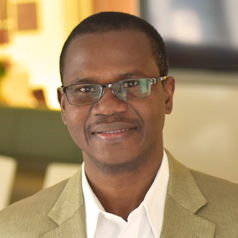
Professor at Drexel University, Dornsife School of Public Health; Former Director of African Population and Health Research Center (APHRC)
Alex Ezeh, PhD, is Professor of Global Health in the Department of Community Health and Prevention at the Dornsife School of Public Health. Dr. Ezeh brings decades of experience in research, research capacity strengthening, and policy advocacy on a range of global health and development issues. Previously, he served as the founding Executive Director of the African Population and Health Research Center (APHRC), addressing population, health, education and development issues. Dr. Ezeh’s work focuses on urban/slum health, population dynamics in sub-Saharan Africa, and models to strengthen knowledge-based institutions in Africa. His research has highlighted the development implications of SSA’s population and urbanization trends, underscored the unique vulnerabilities slum populations face, defined the systems (education, health, economic, etc.) that best serve slum populations, and has ensured slum populations become more visible in national and global reports and data systems. His work on strengthening knowledge-based institutions is focused on addressing the undermined capacity of African institutions resulting from century-old systems of unequal partnerships with institutions in the global North.
Xiaolan Fu

Professor of Technology and International Development; Founding Director, Technology & Management Centre for Development, University of Oxford
Xiaolan Fu is the Founding Director of the Technology and Management Centre for Development, Professor of Technology and International Development at the University of Oxford, a Fellow of the Academy of Social Sciences, a Director of Oxford Advanced Research Centre, and a Fellow of Green Templeton College. She is also Founder of OxValue.ai. Her research interests include innovation, technology and industrialisation; trade, foreign direct investment and economic development; digital technologies; and AI-driven technology valuation. She is appointed by the Secretary-General of United Nations to the Governing Council of the Technology Bank for the Least Developed the Counties and to the first Ten-Member High Level Advisory Group of the UN Technology Facilitation Mechanism. She is a winner of 2021 Falling Walls Scientific Breakthrough Award, and a series of other international awards.
Anastasia Gage
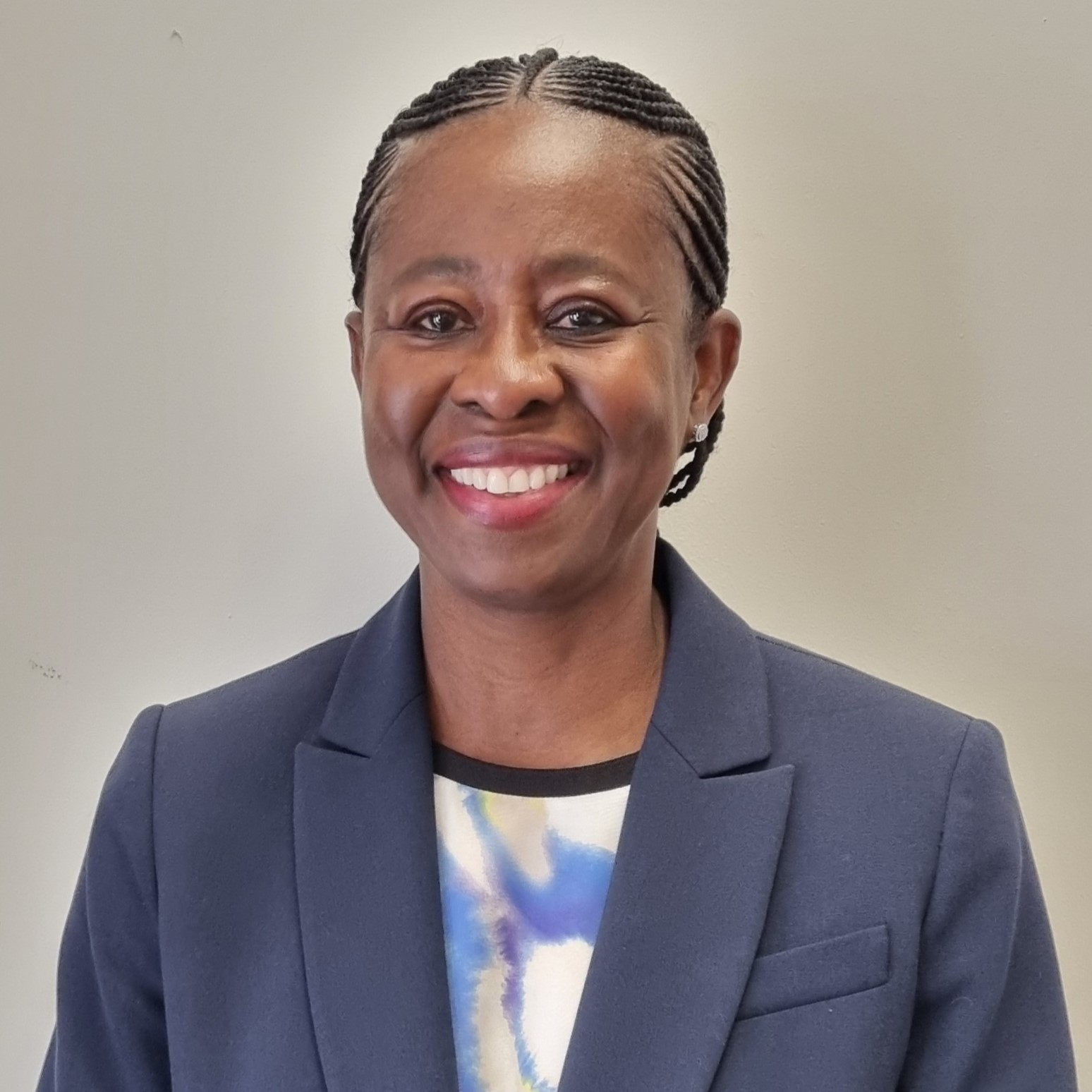
Professor at the Department of International Health and Sustainable Development, Celia Scott Weatherhead School of Public Health & Tropical Medicine, Tulane University
Anastasia J. Gage, PhD, is a distinguished demography and public health expert, with over three decades of experience advancing global health and development goals through research and strengthening local capacity for evidence-based programming and policy implementation. A professor at Tulane University’s Celia Scott Weatherhead School of Public Health and Tropical Medicine, she specializes in adolescent wellbeing, gender equity, family planning and reproductive health, and sustainable development, particularly in sub-Saharan Africa. Dr. Gage has served as a technical expert to many organizations, including UN DESA, UNICEF, and UN Women, including as an invited panelist on issues related to population dynamics, gender, and the Sustainable Development Goals. A former President of the International Union for the Scientific Study of Population, she continues to serve on scientific advisory groups at icddr,b and Institut nationale d’études démographiques (The French Institute for Demographic Studies). Dr. Gage has published extensively in peer-reviewed journals and led major evaluation projects such as the Momentum project in Democratic Republic of the Congo. She is a strong advocate for evidence-based research and policy that centers the lived experiences of women and youth.
Jayati Ghosh
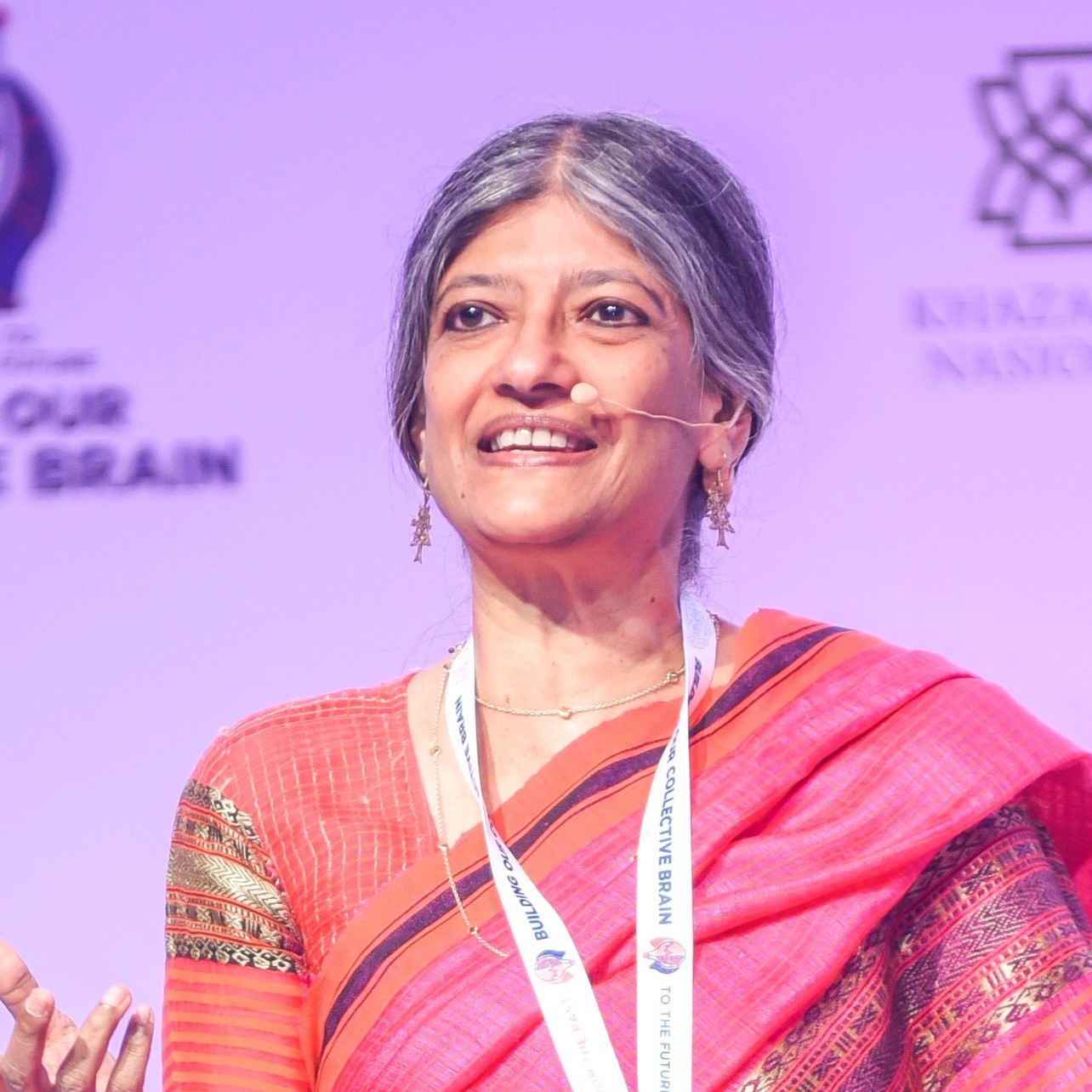
Professor, Department of Economics, University of Massachusetts at Amherst
Since January 2021, Jayati Ghosh has been Professor of Economics at the University of Massachusetts Amherst, USA. She has advised governments in India and other countries, including as Chairperson of the Andhra Pradesh Commission on Farmers’ Welfare in 2004, and Member of the National Knowledge Commission of India (2005-09). She was the Executive Secretary of International Development Economics Associates (www.networkideas.org), an international network of heterodox development economists, from 2002 to 2021. She has consulted for international organizations including ILO, UNDP, UNCTAD, UN-DESA, UNRISD and UN Women and is member of several international boards and commissions, including the Commission on Global Economic Transformation of INET, the International Commission for the Reform of International Corporate Taxation (ICRICT). In March 2022, she was appointed to the UN Secretary General’s High-Level Advisory Board on Effective Multilateralism, mandated to provide a vision for international cooperation to deal with current and future challenges.
Stephany Griffith-Jones
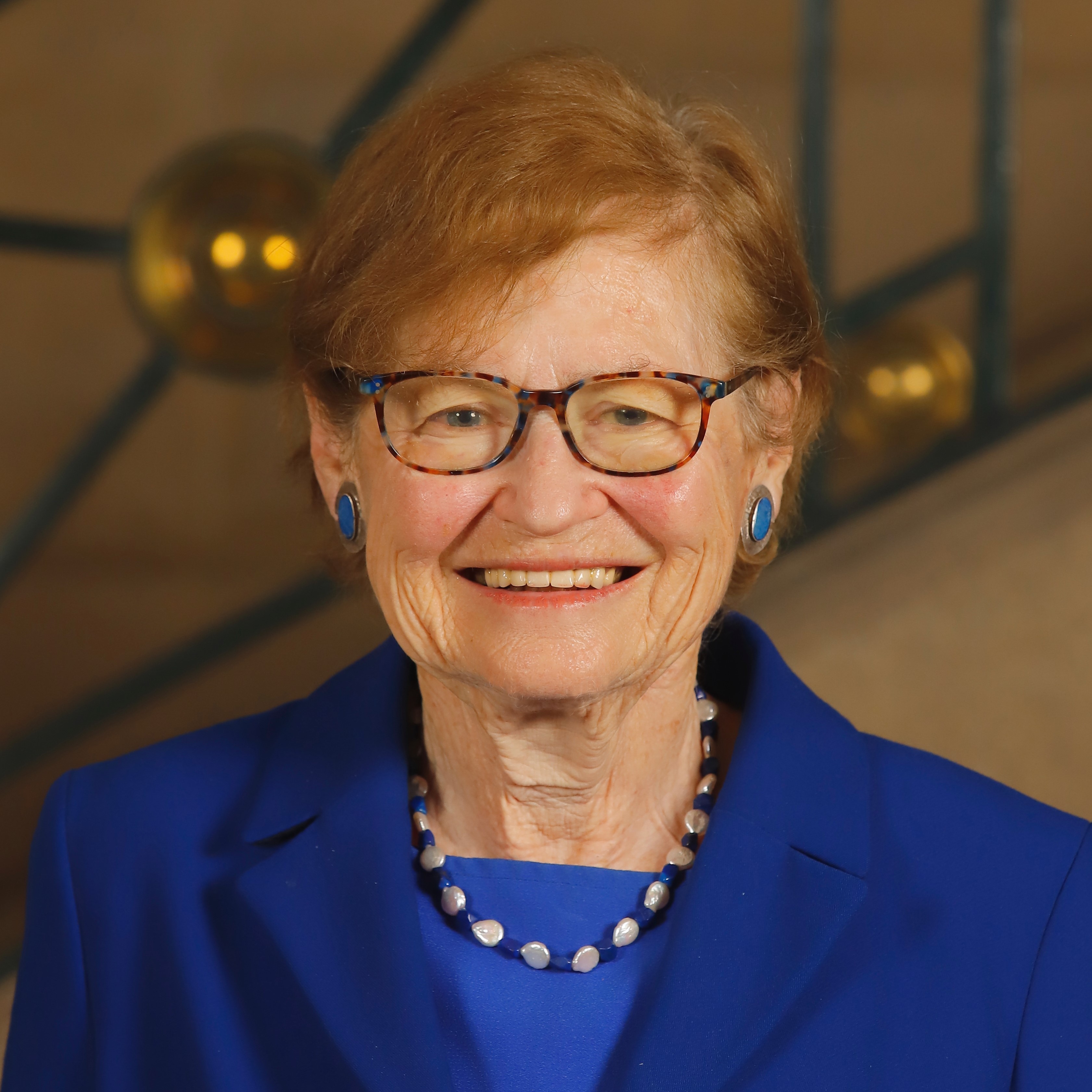
Vice-Governor of the Central Bank of Chile; Professor Emeritus at Institute of Development Studies, University of Sussex
Stephany Griffith-Jones is the Deputy Governor of the Central Bank of Chile since January 2024. She was appointed Board member of the Central Bank of Chile in May 2022. She is currently Professor Emeritus at IDS, the University of Sussex. She was Director of Financial Markets at Columbia University's Initiative for Economic Policy Dialogue, Research Associate at ODI London, Non-Resident Research Fellow at the Center for Global Development in Washington DC and Distinguished Fellow at the Climateworks Foundation in California. She has been Researcher and advisor on international and domestic finance, including capital flows and reform of the international and domestic financial architecture, from a development perspective; the role of national and regional development banks, especially in Europe and Latin America, with particular emphasis on their increasing involvement in financing low-carbon investments. She lead numerous major global research projects on global financial and macroeconomic issues, with networks of senior academics and policymakers from both developed and developing countries.
Fadhel Kaboub

President, Global Institute for Sustainable Prosperity; Associate Professor of Economics at Denison University
Fadhel Kaboub is an associate professor of economics at Denison University and the president of the Global Institute for Sustainable Prosperity. He is a member of the Independent Expert Group on Just Transition and Development, an expert group member with the Global Solidarity Levies Task Force, a member of the Earth4All 21st Century Transformational Economics Commission, a Steering Committee member with the Fossil Fuel Non-Proliferation Treaty Initiative, and a member of the Independent Expert Group on Just Transition Finance. Dr. Kaboub has recently served as Under-Secretary-General for Financing for Development at the Organisation of Southern Cooperation in Addis Ababa, Ethiopia. He is an expert on designing public policies to enhance monetary and economic sovereignty in the Global South, build resilience, and promote equitable and sustainable prosperity. His recent work focuses on Just Transition, Climate Finance, and transforming the global trade, finance, and investment architecture. He has held a number of research affiliations with the Levy Economics Institute (NY), the John F. Kennedy School of Government at Harvard University (MA), the Economic Research Forum (Cairo), Power Shift Africa (Nairobi), African Forum on Climate Change, Energy and Development (Abuja), and the Center for Strategic Studies on the Maghreb (Tunis).
Martin Kimani

CEO of The Africa Center, New York
Ambassador Martin Kimani is the President and CEO of The Africa Center in New York City. He is also a Diplomat-in-Residence at the Anwar Gargash Diplomatic Academy (UAE) and a Distinguished Fellow at the Institute for Global Politics at Columbia University. Prior to a stint as Executive Director of the Center on International Cooperation at New York University, he was the Permanent Representative of Kenya to the United Nations in New York, where he held significant leadership roles, including serving as the 2023 President of the Executive Board of the UN Development Programme, the UN Population Fund, and the UN Office for Project Services, and as the President of the UN Security Council in October 2021. Ambassador Kimani led the Kenyan delegation to the UN Security Council in 2021 and 2022. He chaired the Security Council’s Informal Expert Group on Climate and Security and the ad hoc Working Group on Conflict Prevention and Resolution in Africa. Ambassador Kimani is also a member of the UN Permanent Forum on People of African Descent.
Nyovani Madise

President of the Union for the African Population Studies
Nyovani Madise is a social statistician and global health specialist. Previously she was director of Development Policy at the African Institute for Development Policy based in the Malawi office; a professor of Demography and Social Statistics at the University of Southampton (UK); a senior research scientist at the African Population and Health Research Center in Kenya and a lecturer of Mathematics at the University of Malawi. A hallmark of her work is understanding the social determinants of health and measuring impact. Madise has authored over 115 peer-reviewed publications on the social determinants of sexual and reproductive health, maternal and child health, and nutrition. She is a trustee of a number of not-for-profit organizations in the UK and Malawi. She is a member of the UN Committee for Development Policy and co-chairs the UN Global Environment Outlook Seventh Assessment.
Ibrahim Mayaki
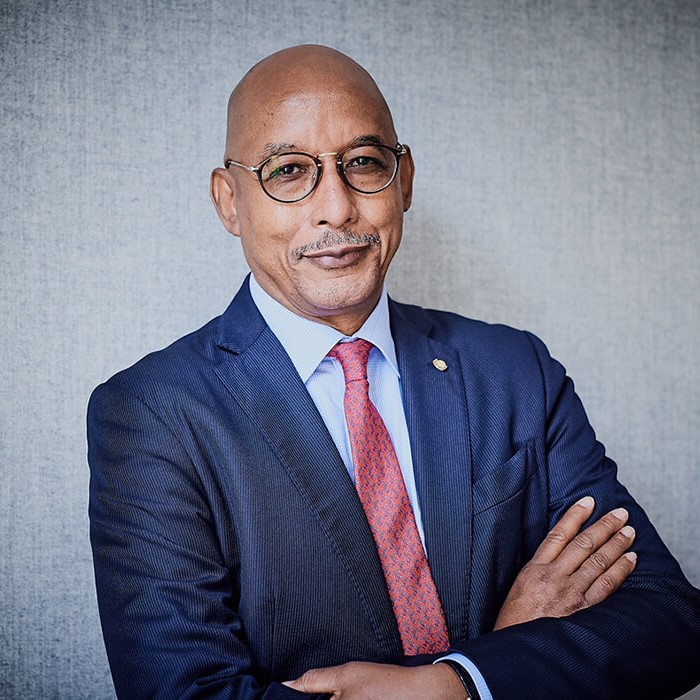
African Union Special Envoy for Food Systems; former Prime Minister of Niger
Dr Ibrahim A. Mayaki of Niger currently serves as the African Union Special Envoy for Food Systems, having been appointed to the role in 2023. Dr Mayaki was the CEO of the African Union Development Agency (AUDA-NEPAD) formerly known as the NEPAD Agency, from 2009-2022. From 2004-2009, he served as Executive Director of Rural Hub, a Dakar-based platform supporting rural development in West and Central Africa. As former Prime Minister of Niger from 1997-2000, Dr Mayaki was committed to promoting social dialogue. In 2000, he created the first National Social Dialogue Commission of Niger. He also started a Think Tank for public policy debate on health and education issues. From 1996-1997, he served as Minister in charge of African Integration and Cooperation and Minister of Foreign Affairs.
Mariana Mazzucato

Professor in the Economics of Innovation and Public Value at University College London (UCL) and Founder/Director of UCL's Institute for Innovation and Public Purpose
Mariana Mazzucato is Professor in the Economics of Innovation and Public Value at University College London, where she is Founding Director of the UCL Institute for Innovation & Public Purpose (IIPP). Her previous posts include the RM Phillips Professorial Chair at the Science Policy Research Unit at Sussex University. She is a member of the UK Academy of Social Sciences (FAcSS), the Italian Academy of Sciences Lincei, and the US Council on Foreign Relations. She advises policy makers around the world on innovation-led inclusive and sustainable growth. Her roles have included for example Technical Expert to South Africa’s G20 Presidency and Special Representative of President Ramaphosa to the G20 Taskforce 1 on Inclusive Economic Growth, Industrialization, Employment, and Reduced Inequality, Co-Chair of the Group of Experts for the G20 Taskforce on a Global Mobilization against Climate Change, Chair of the World Health Organization’s Council on the Economics of Health for All, Co-Chair of the Global Commission on the Economics of Water, Co-Chair on the Council on Urban Initiatives, Commissioner for the Jubilee Report on Addressing the Debt and Development Crises in Countries from the South, and member of the South African President’s Economic Advisory Council.
Raya Muttarak
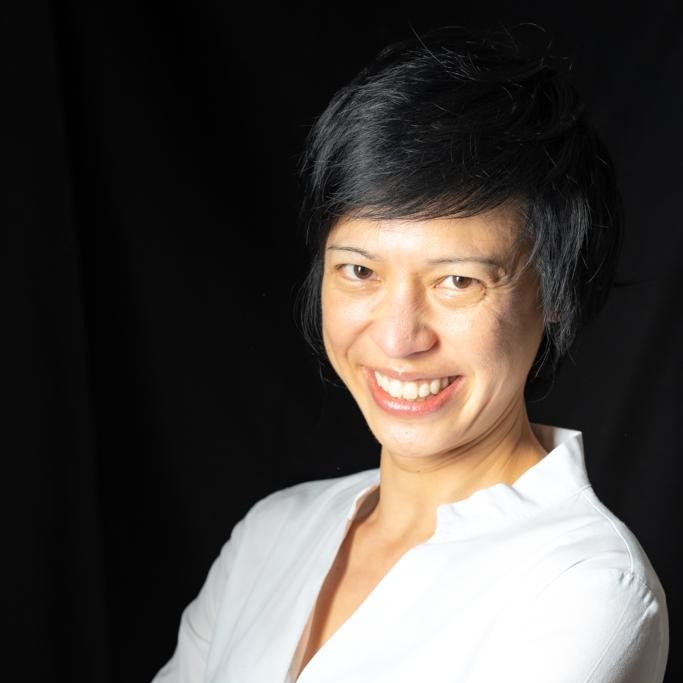
Professor of Demography, University of Bologna
Raya Muttarak is Professor of Demography at the Department of Statistical Sciences at the University of Bologna, Italy. She also currently serves as a chair of the IUSSP scientific panel on “Population Dynamics under Global Conflict and Climate Change”. In 2021, she was the director of the Population and Just Societies Program at the International Institute for Applied Systems Analysis (IIASA). Raya’s research interest is in the field of population, environment and sustainable development with a focus on differential vulnerability, adaptive capacity, human impact on the environment, migration and forecasting future demographic and socioeconomic trajectories. She is currently a principle investigator of the European Research Council (ERC) Consolidator Grant project “Population Dynamics under Global Climate Change (POPCLIMA)” (2022-2026), which aims to assess the impact of climate change on fertility, mortality and migration and forecast future populations accounting for the climate feedback.
José Antonio Ocampo

Professor, Columbia University
José Antonio Ocampo is Professor at the School of International and Public Affairs and Member of the Committee on Global Thought and the Initiative for Policy Dialogue at Columbia University. He is also Chair of the Committee for Development Policy of the United Nations Economic and Social Council (ECOSOC) and of the International Commission of Experts for the Fourth United Nations Conference on Financing for Development. He has occupied numerous positions at the United Nations and his native Colombia, including UN Under-Secretary-General for Economic and Social Affairs, Executive Secretary of the UN Economic Commission for Latin America and the Caribbean (ECLAC), and Minister of Finance and Public Credit on two occasions, Minister of Agriculture and Rural Development, Director of the National Planning Office of Colombia, and Member of the Board of Directors of Banco de la República (Colombia’s central bank). He is also a member and has been the chair of the Independent Commission for the Reform of International Corporate Taxation (ICRICT).
Åsa Persson
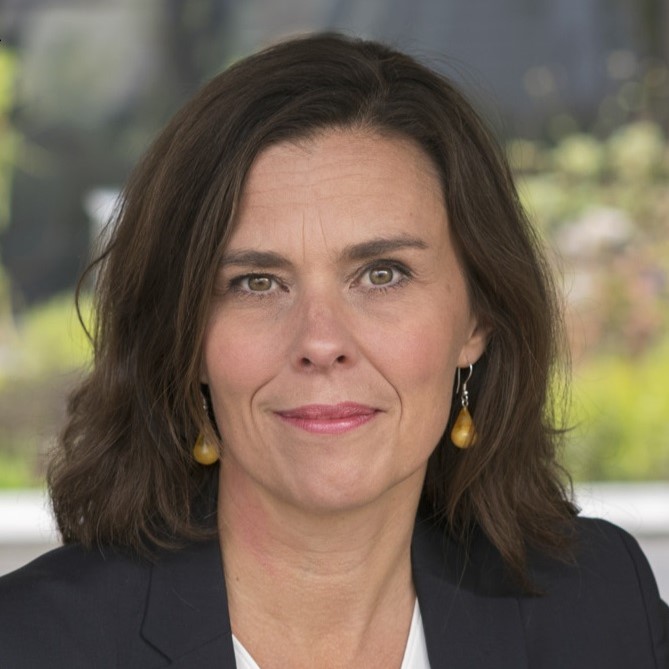
Strategic Advisor and Researcher, KTH Royal Institute of Technology, Climate Action Centre; Chair, Swedish Climate Policy Council
Åsa Persson is Strategic Advisor and Researcher at KTH Royal Institute of Technology, Climate Action Centre, as well as the Chair of Swedish Climate Policy Council. She is also a Senior Research Fellow (on leave) at the Stockholm Environment Institute (SEI), having served as its Research Director and Deputy Director (2018-2025). Dr. Persson is a social scientist and expert on climate and sustainable development governance. She is also a member of the UN Committee for Development Policy and was appointed by the UN Secretary-General in 2020 to the Independent Group of Scientists to draft the 2023 UN Global Sustainable Development Report. Her own research focuses on the interaction between global and national climate policy and governance, including the implementation of the UN Sustainable Development Goals (SDGs). Previous research includes the global governance of climate change adaptation, climate finance, implementation of international environmental agreements, environmental policy integration and coherence, and development of the planetary boundaries framework.
Elisabeth Sidiropoulos
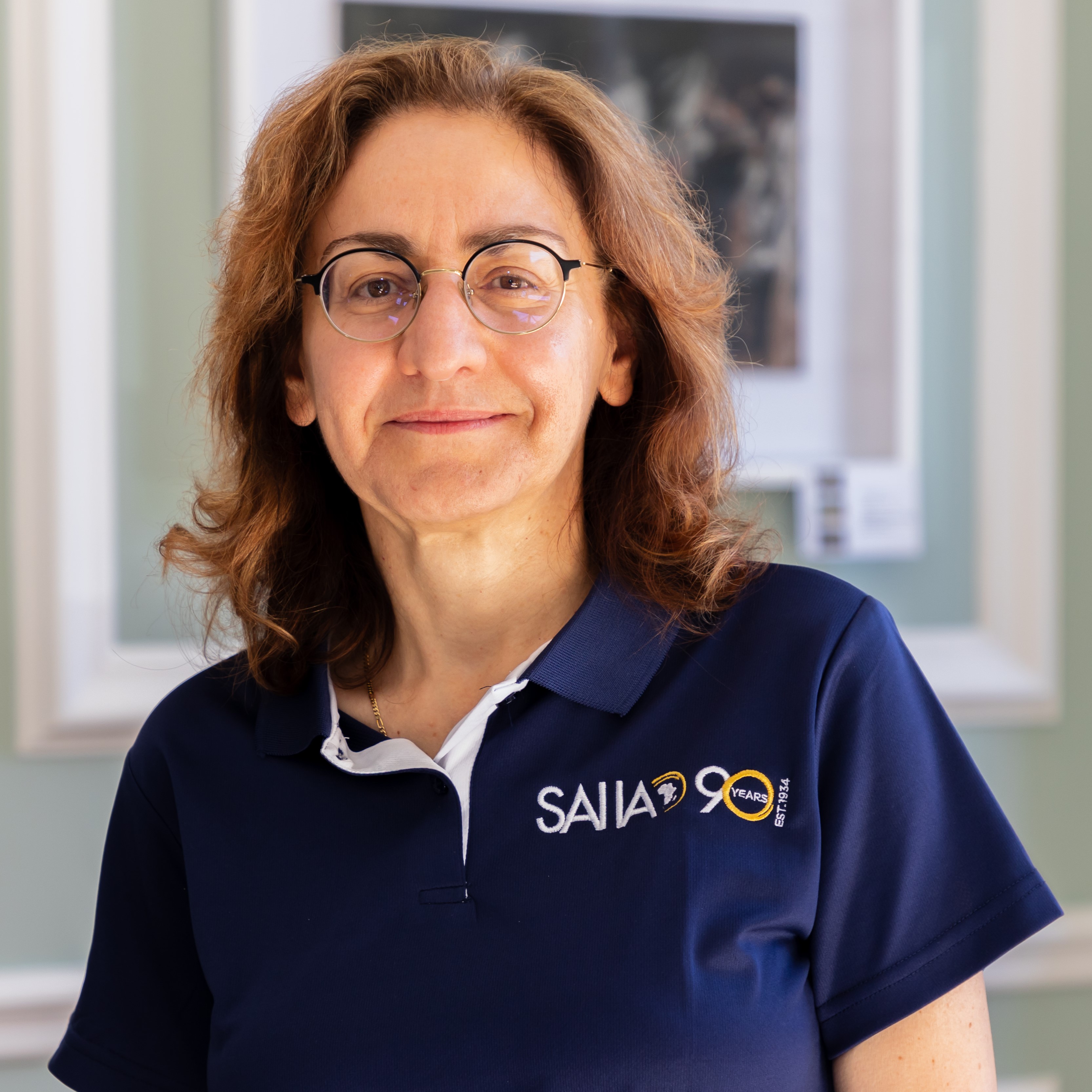
Chief Executive, the South African Institute of International Affairs (SAIIA)
Elizabeth Sidiropoulos is the Chief Executive of the South African Institute of International Affairs (SAIIA). Her areas of expertise lie in South African foreign policy, Africa and external powers, global governance and south-south cooperation. She is the editor-in-chief of the South African Journal of International Affairs, a policy-oriented, peer-reviewed and interdisciplinary forum for discussion on Africa’s and South Africa’s international affairs. She is a regular commentator in South African and foreign media. She was on the Secretariat of the T20 Brazil’s International Advisory Council. She is one of the co-convenors of the T20 South Africa, an official engagement group of the G20.
David Christopher Smith

Director, Centre for Environmental Management, The University of the West Indies. Coordinator, Institute for Sustainable Development, University of the West Indies, Kingston, Jamaica
David Christopher Smith is the Coordinator of the Institute for Sustainable Development (ISD) and Director of the Centre for Environmental Management (CEM) at The University of the West Indies. He is also the Caribbean Coordinator for the Sustainable Development Solutions Network (UN SDSN). He is an ecologist with almost 30 years’ experience in academia, civil society, the private sector, and the United Nations, focusing on Sustainable Development, Biodiversity Conservation, Climate Change, Disaster Risk Reduction and their effects on human wellbeing in Small Island Developing States. David has served in both advisory and policy development roles on a number of local, regional and international organisations. These include his current role on the Science Policy Advisory Committee (SPAC) of the Inter-American Institute for Global Change Research (IAI) and his appointment onto the Independent Group of Scientists who prepared the UN Global Sustainable Development Report 2019.
Dhananjayan Sriskandarajah
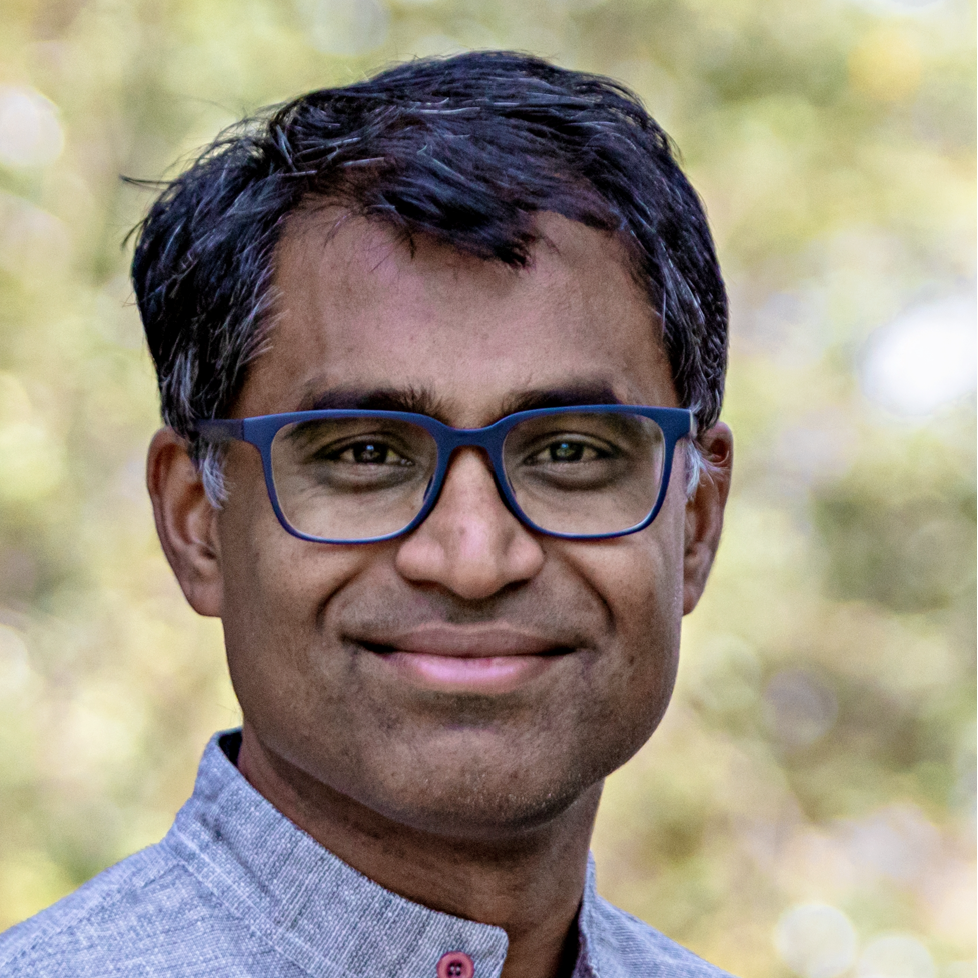
Chief Executive of New Economics Foundation, former Chief Executive of Oxfam, former Secretary General and CEO of CIVICUS
Dr Dhananjayan Sriskandarajah is Chief Executive of the New Economics Foundation and author of "Power to the People: Use your voice, change the world" (Headline Press, 2024). Dr Sriskandarajah's previous roles include CEO of Oxfam GB, Secretary General of CIVICUS, Director of the Royal Commonwealth Society, Interim Director of the Commonwealth Foundation and various posts at the Institute for Public Policy Research. He is a Trustee of the Guy’s & St Thomas’ Foundation and served on the Quadrature Climate Foundation's Advisory Board. He has previously been a member of two United Nations High Level Panels, on digital co-operation and humanitarian finance, and was a member of Lead Group of Scaling Up Nutrition.
Joseph Eugene Stiglitz

University Professor, Columbia University
Joseph E. Stiglitz is University Professor at Columbia University in New York. He is also the Co-Founder and Co-President of the Initiative for Policy Dialogue at Columbia and Chief Economist of the Roosevelt Institute. In 2001, he was awarded the Nobel Prize in Economics for his analyses of markets with asymmetric information, and he was a lead author of the 1995 Report of the Intergovernmental Panel on Climate Change, which shared the 2007 Nobel Peace Prize. Stiglitz was a member of the Council of Economic Advisers from 1993–95, during the Clinton administration, and served as CEA chairman from 1995–97. He then became Chief Economist and Senior Vice-President of the World Bank from 1997–2000. In 2008 he was asked by the French President Nicolas Sarkozy to chair the Commission on the Measurement of Economic Performance and Social Progress, which released its final report in September 2009. He now chairs a High Level Expert Group at the OECD attempting to further advance these ideas. In 2009 he was appointed by the President of the United Nations General Assembly as chair of the Commission of Experts on Reform of the International Financial and Monetary System, which also released its report in September 2009. Since the 2008 financial crisis, he has played an important role in the creation of the Institute for New Economic Thinking (INET), which seeks to reform the discipline so it is better equipped to find solutions to the great challenges of the 21st century.
Izabella Mônica Vieira Teixeira

Former Minister of Environment, Brazil
Dr. Izabella Teixeira was Minister of the Environment of Brazil from 2010 – 2016, serving as Deputy Minister of the Environment from 2008 – 2010. Dr. Teixeira’s international experience comes from the negotiation and management of international projects in Brazil (e.g. PPG7). At the invitation of the UN Secretary-General, she was a member of the High-Level Panel on Global Sustainability. She was also a key leader of the 2012 UN Rio+20 Conference on Sustainable Development. After Rio+20 she was again appointed by the UN Secretary-General as a member of the High-Level Panel on the Post-2015 Development Agenda (2030 Agenda). In 2015, Minister Teixeira was Head of the Brazilian Delegation on negotiations of the Paris Agreement of the UN Convention on Climate Change. Today, Dr. Teixeira is Co-Chair of The UN International Resource Panel (IRP/UNEP-ONU), a Senior Fellow of Institute Arapyaú and Trustee for Environment and Climate Change of Brazilian Center for International Relations (CEBRI). Dr. Teixeira was special adviser to the Chairs of COP 27 and COP 28 of the UNFCCC and is a member of the Friends of the Paris Agreement. In 2024, she also was the Co-Chair of the T20 of the G20.
Kori Udovički

Head of Center for Advanced Economic Studies (CEVES)
Kori Udovički is founder and heads the Belgrade think-tank Center for Advanced Economic Studies (CEVES), an independent think-and-do-tank devoted to advancing Serbia’s economic recovery, democratic consolidation, and convergence with the European Union. Previously she was Deputy Prime Minister and Minister of Public Administration and Local Self-Government (2014-2016) in the Government of Serbia. In this position she launched comprehensive reforms of the public administration including the design and adoption of an employment control and public administration sizing mechanism and the adoption of long postponed regulatory packages for the general administrative procedure, the inspections system, public administration wages, and civil service at the local level. In Serbia she also served as Minister of Energy and Mines (2002-2003), and as the first woman Governor of the National Bank of Serbia (2003-2004). In 2007-2012, she served as Assistant Secretary General of the UN, Assistant Administrator and Director of the Bureau for Europe and CIS of UNDP. Prior to joining UNDP, she founded the Foundation for the Advancement of Economics (FREN) in Serbia, and established and edited its flagship publication, the Quarterly Monitor of Economic Trends and Policies in Serbia. From 1993 to 2001 Mrs. Udovički worked as an Economist at the International Monetary Fund.
